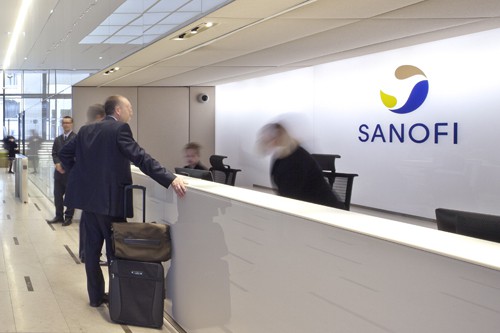
Sanofi and Regeneron’s cholesterol-lowering antibody alirocumab is effective even when given just once a month, according to new trial results.
The new data helps narrow the gap between alirocumab and arch-rival evolocumab from Amgen, which was filed for approval in the US last August with both once-monthly and fortnightly dosing regimens.
In the ODYSSEY CHOICE I and CHOICE II trials, PCSK9 inhibitor alirocumab reduced ‘bad’ low-density lipoprotein (LDL) cholesterol significantly more than placebo after 24 weeks and around the same as the two-weekly regimen, according to the companies.
“These results continue to validate our clinical development approach, which is designed to investigate various alirocumab doses and intervals to address patients’ lipid-lowering needs,” commented Bill Sasiela, vice president programme direction at Regeneron’s cardiovascular and metabolic division.
The PCSK9 inhibitors are billed as a new frontier for cholesterol-lowering therapy, providing an effective therapy for the sizeable proportion of patients who cannot reach their cholesterol targets or tolerate therapy with statins.
CHOICE I evaluated the efficacy and safety of alirocumab in 803 patients with high blood cholesterol and moderate to high cardiovascular risk, two thirds of whom were also taking statins. It compared alirocumab 300mg every four weeks with placebo.
Meanwhile, CHOICE II compared a monthly 150mg dose of alirocumab to placebo in 233 patients with elevated cholesterol and high cardiovascular risk and/or a history of intolerance to two or more statins.
In both trials, patients who did not achieve a 30% reduction in LDL-cholesterol levels after 12 weeks were swapped over to dosing every other week.
Sanofi and Regeneron have not revealed anything more than the top line findings from the trials, so the scale of the benefit with monthly dosing remains undisclosed, although in prior trials two-weekly doses of alirocumab cut LDL-cholesterol between 45% and 65%, depending on the patient population.
Alirocumab has also been shown to have cardiovascular risk at an interim stage of a post-hoc analysis due to complete next year.
Despite Amgen’s first-to-file status, Sanofi and Regeneron have sought to shorten their rival’s lead by purchasing an FDA priority review voucher originally awarded to BioMarin Pharmaceutical for $67.5m.
Meanwhile, the rivalry has also spilled into the courts, with Amgen filing a lawsuit last October accusing Sanofi and Regeneron of infringing its patents on PCSK9 inhibition.
Analysts at Leerink Partners have previously suggested there will be little to choose between the two leaders in the PCSK9 inhibitor category once they are both on the market, with each predicted to achieve between $4.3bn and $6.8bn at peak, depending on whether they will be used in combination with statins as well as an alternative therapy.
A third PCSK9 inhibitor – Pfizer’s bococizumab (RN316) – has also reported results from phase III trials but is expected to lag a little behind the leaders in terms of market share.




